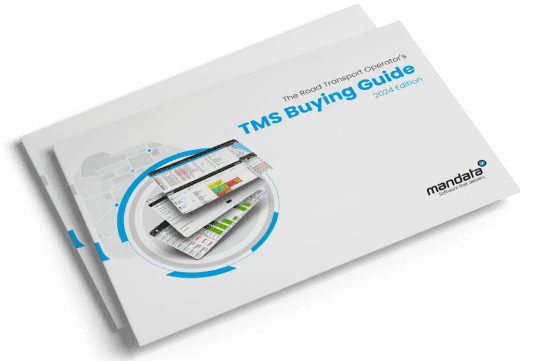What is OCRS scoring and why a good score helps hauliers
Becoming a transport operator in the UK comes with a multitude of responsibilities to manage risk. Safety, compliance and overall efficiency are just some of the variables which hauliers are required to prioritise whilst operating within logistics. One way to evaluate compliance risk exposure is through an Operator Compliance Risk Score (OCRS).
In this blog, we will explore what OCRS scoring is, why it is important, and why using a dedicated Transport Management System (TMS) could help operators to improve their OCRS scores.
What is OCRS?
OCRS stands for “Operator Compliance Risk Score”, which is a scoring system developed by the Driver and Vehicle Standards Agency (DVSA) to evaluate and monitor the safety and compliance performance of road transport operators. OCRS scoring ranks companies based on their adherence to safety regulations and compliance standards, and helps to identify operators who pose a higher risk to road safety due to non-compliance, in order to protect other road users and the public from any malpractice.
What does having a good OCRS score show?
Operators with a good OCRS score show that they prioritise the following:
- Safety: Companies that don’t adhere to safety regulations can pose significant risks to both their own drivers and other road users. Monitoring OCRS scores allows authorities to identify and address potential safety hazards promptly.
- Compliance: It shows the transport company consistently complies with industry rules and regulations to avoid legal issues and fines.
- Reputation: A low OCRS score can harm a company’s reputation, while a good score can lead to recognition and accreditation. Alternatively, a good score could earn the DVSA Earned Recognised operator accreditation, showcasing industry leading practices.
- Efficiency: Companies with better OCRS scores tend to have well-maintained vehicles, fully trained drivers, and with efficient procedures in place.
What Does OCRS Measure?
OCRS scoring is based on various criteria and data, provided by the transport business, or from roadside stops, and is then analysed by the DVSA, including attributes such as:
- Roadworthiness: It assesses the condition of a company’s vehicles, including regular maintenance, MOTs, inspections, and compliance with vehicle standards. Inspections of the fleet both at depots and on the roadside are also taken into consideration here.
- Traffic: This component measures a company’s record of evaluating drivers’ hours and any tachograph offences. It also assesses weighing checks to ensure there has been no overloading in their vehicles.
- Combined: The 2 scores are then combined to give the DVSA a final score which places the operator in one of these OCRS scoring bands:
· Blue: DVSA earned recognition operator
· Green: Low-risk operator
· Amber: Medium-risk operator
· Red: High-risk operator
· Grey: Unknown operator
These scores are worked out on a 3-year rolling basis.
How to Improve OCRS Scores
Not only is improving OCRS scores vital for transport companies to run as efficiently and as safely as possible, but it also highlights areas where operators can improve within their operations. Using transport management software (TMS), businesses are able to manage all their daily transport operations. Some areas that a TMS can help improve include the following:
- Regular Maintenance: TMS solutions can track vehicle MOT dates, maintenance schedules, and logged defect history ensuring that operators have full visibility of their vehicles’ condition, and that they are always in a roadworthy condition, helping reduce vehicle violations.
- Compliance Management: TMS systems help operators to monitor compliance in real-time, but they also assist in organising and storing compliance-related documentation such as vehicle maintenance records, history of driver hours, proof of delivery forms, and any traffic offences, making all data easily accessible during audits and inspections.
- Optimised Planning: Through a TMS, planners can ensure vehicles loaded appropriately, with vehicle capacities being capped to ensure no overloading takes place, keeping the vehicle safe, and reducing the risk of incurring a negative OCRS score.
- Data Analysis: A TMS provides insights into data such as driver behaviour, allowing operators to address unsafe and inefficient driving habits to improve safety, which can positively affect OCRS scores. Using a TMS also helps with consolidating a multitude of varying data for reports and analytics, offering insights into compliance areas that require improvement.
In conclusion, OCRS scoring is a critical aspect of the transport industry in the UK. It serves as a vital tool for enhancing road safety, ensuring regulatory compliance, and maintaining a positive reputation within the industry. Transport companies that pay attention to their OCRS scores and take proactive measures to improve them are more likely to thrive in this highly competitive and safety-conscious sector.
Read more: 9 Benefits of a Transport Management System for Haulage Businesses

